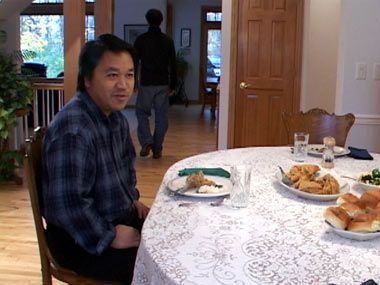Manners
Good manners go a long way in making a positive impact on the people we encounter everyday. This program teaches Manners that people need to use everyday. This program is a higher level version of our Manners How-To Series (HTS). This Learning Activity Series (LAS) approaches the content in a way that is more suitable for advanced users, using interactive lessons based upon video modeling. This program teaches tips for good manners when Meeting/Greeting People, Giving help to others, Asking for Help, Being Thoughtful and Considerate, Using Good Behavior, and Table Manners.

Meeting/Greeting people
- You see a new person
- Make eye contact
- Move toward the person
- Stand the correct distance apart
- Look the person in the eyes
- Greet the person
- Speak clearly
- Say “How are you today?”
- Answer “I am fine, thanks.”
- Shake hands
- Introduce yourself
- Let others introduce themselves
- Introduce others
- Keep conversation going
- End conversation
- Leave
Giving Help to Others
- You see someone who needs help
- Make eye contact
- Move towards the person
- Stand the correct distance apart
- Look the person in the eyes
- Greet the person
- Speak clearly
- Ask “May I help you?”
- If the response is yes to your offer to help
- Ask questions
- Give help
- Accept thanks
- Say “You’re welcome”
- Leave
Asking for Help
- Look for someone that you can ask to help
- Make eye contact
- Move towards the person
- Stand the correct distance apart
- Speak clearly
- Ask for help
- Ask questions
- Answer any questions
- Thank the other people for their help
- Leave
Being Thoughtful and Considerate
- Offer help to others
- Ask for permission
- Include others in conversations
- Don’t interrupt
- Consider the feelings of others
- When you make a mistake – apologize
- Compliment others
Using Good Behavior
- Be on time
- Hold the door for others
- Give up your seat
- Join in with others
- Share with others
- Pay attention when speaking or listening
- Treat others in the way you would like to be treated
- Let others work
Table Manners
- Wash your hands before eating
- Come when you are called
- Sit quietly in a seat
- Say grace
- Put your napkin on your lap
- Pass the food
- Take a small amount of food
- Ask politely for things you want
- Wait for others
- Use your silverware
- Eat slowly with your mouth closed
- Don’t talk with your mouth full
- Don’t make noises
- Say good things about the food
- Don’t interrupt others
- Wait for seconds
- Use your napkin
- When done eating, ask to be excused
- Offer help
- Thank the cook
